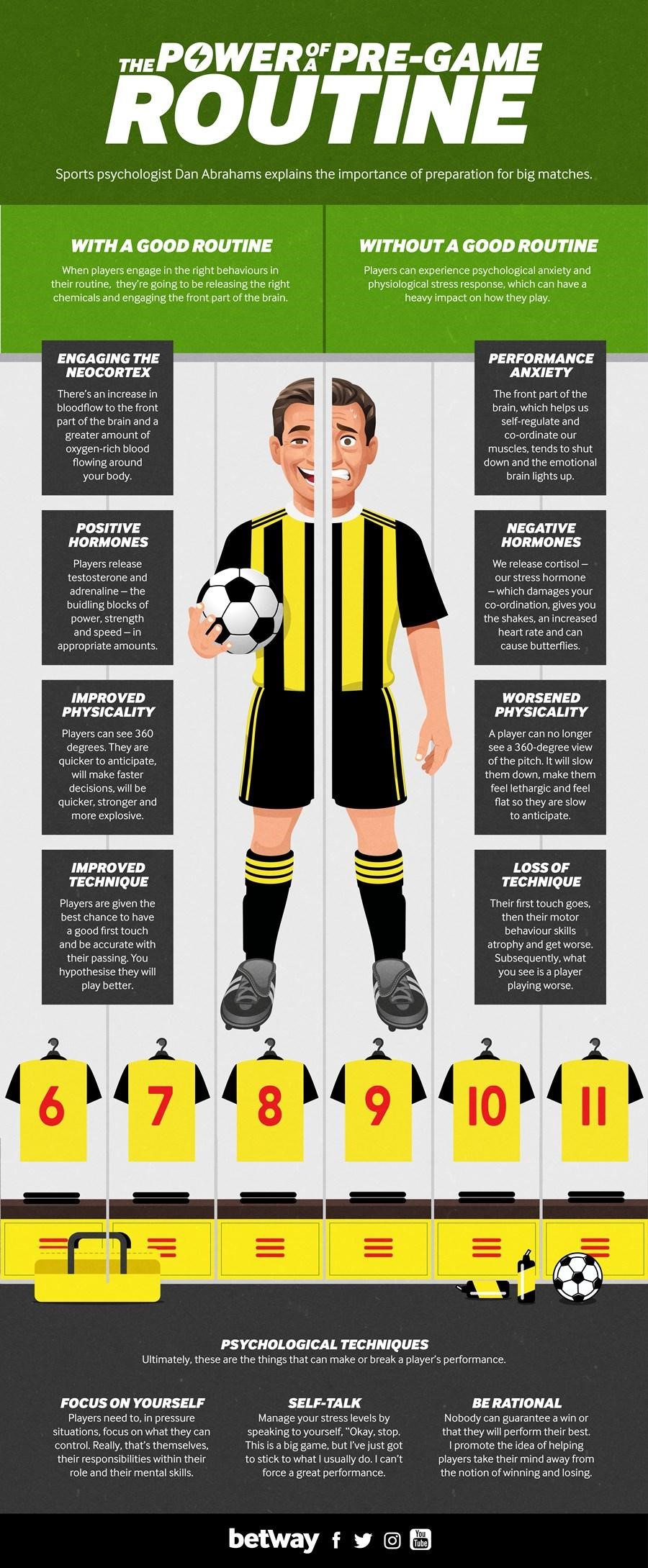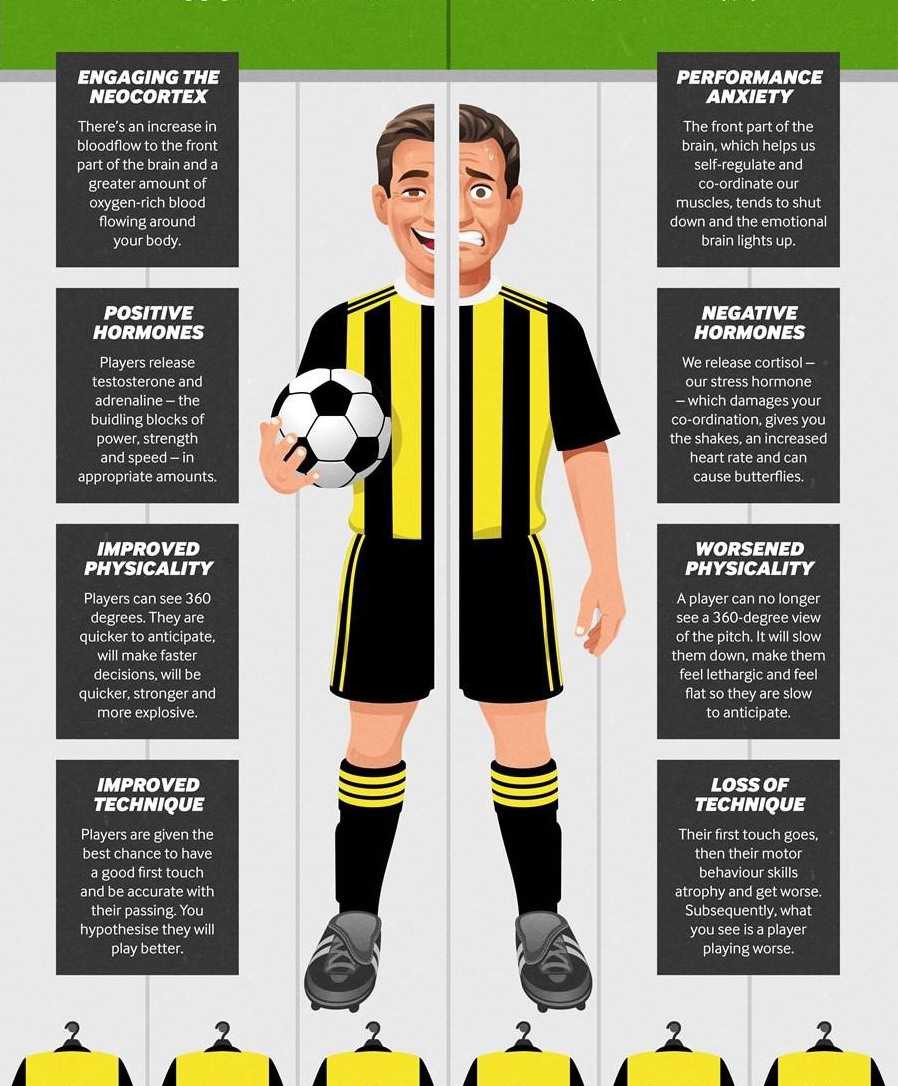An exclusive interview with Dan Abraham, Betway Insider understood how mental preparation can offer the best chances to Watford in making history on the judgment day of FA Cup.
FA Cup final day.
Players arrive at the national stadium suited and booted, before getting changed in an enormous, unfamiliar dressing room.
Standing tall and paying their homage to the song ‘God Save The Queen’ sung by an opera singer, the players converse a little and shake hands with Prince William on the red carpet.
A crowd of fans summing up to 90,000, roaring with passion and hope for their respective clubs, creates a unique yet intimidating atmosphere for the Watford players.
Most of the fans are extremely excited to witness their favourite club playing a major trophy final. The rest of the crowd is there to witness history with no thrill as such.
The Hornets have played three finals of Championships but this one seems to be different from the others. The players are a little intimidated.
Recalling past incidents, Huerelho Gomes reached the semi-final of the champion’s League to play against PSV around ten years ago. Pereyra appeared when the game had 10 minutes left. Barcelona defeated Juventus in the final match held in 2015 that day.
Dan Abrahams, the leading sports psychologist, explains what is like to play in front of an overwhelming crowd and whistle goes off. The players start playing a career-defining D-day game with the opponents.
Dan Abrahams said, “The implications of the different atmosphere can bring performance anxiety, which can be crippling.” Yes! His analysis is undeniable as he has comprehensively read the players’ behaviour for 19 strong years in Ostersunds, FA, LMA, PFA, etc.
He explains that in one-off matches, the players often fail to perform at their best. They overhit crosses, misplace passes, and tend to overthink the parameters leading to wrong decisions.

He said, “As the name performance anxiety suggests, players can experience psychological anxiety and physiological stress response.”
He added “Players develop tunnel vision, where they no longer see a 360-degree view of the pitch. It will make them feel lethargic and flat, so they’re slow to anticipate and are slow to make decisions.”
Abrahams explained “Their first touch goes and their motor behaviour, which is essentially their technique, atrophies. Subsequently, what you see is a player playing worse.”
Despite the adverse conditions, the Hornets found their way to get over the overwhelming side effects of this away-game. Considering the performance of the Wigan Athletics’ heroes in FA Cup 2013, the occasion was the same and so are the incapacitating parameters.
The Latics won the final match with a huge turn of events by introducing Ben Watson at the stoppage time. This is how the players turn the conditions into their favour and won the championship, the only major win for them. The opposition was Manchester City!
In fact, Emmerson Boyce, the then captain of Wigan Atheltic, told Daily Mail that things were absolutely calm and peaceful before the match with Pep’s army in 2018. The Latics won that match too.
This is where Abrahams cited the specific mental preparation a team should pursue. He also held a formidable position as the lead sports psychologist in England Golf in 2013-16. He was also in the same position with England Rugby in 2017-18.
He emphasized keeping the daily routine normal even for the next day’s match. It is very important to maintain the same streak to avoid overstressing mind. He concluded, “You’re trying to help players perceive the game in the same way they perceive every game.”
He uses unique psychological measures and techniques to engage the players in normal activities to avoid unnerving thoughts or actions. His prime philosophy for a big game ahead is ‘controlling the controllables’. This is where he makes the difference and alleviates the gravity of a big game and makes it a weekly event-level stage for the players.
He stresses that only the players will be on the ground for 90 minutes and only they can focus on the situation. He adds “That’s their responsibilities within their role, their mental skills, having a consistent personality on the pitch, playing with positive intention and at the right intensity. It’s easy to say these things, which seem small things and throwaway remarks but, ultimately, these can make or break a player’s performance.”
The cognitive part of the players’ brain receives more blood thus giving an extra edge to make proper decisions. He said, “Players also release hormones such as testosterone and adrenaline – the building blocks of power, strength and speed – as well as dopamine – your interest chemical – and endorphins, which are your feel-good chemicals, in the appropriate amounts.”
He concludes that these feel-good reactions in the brain will not escalate the technical capabilities of the players but will surely elevate the possibilities against Manchester City. This opportunity comes only once every three decades.

